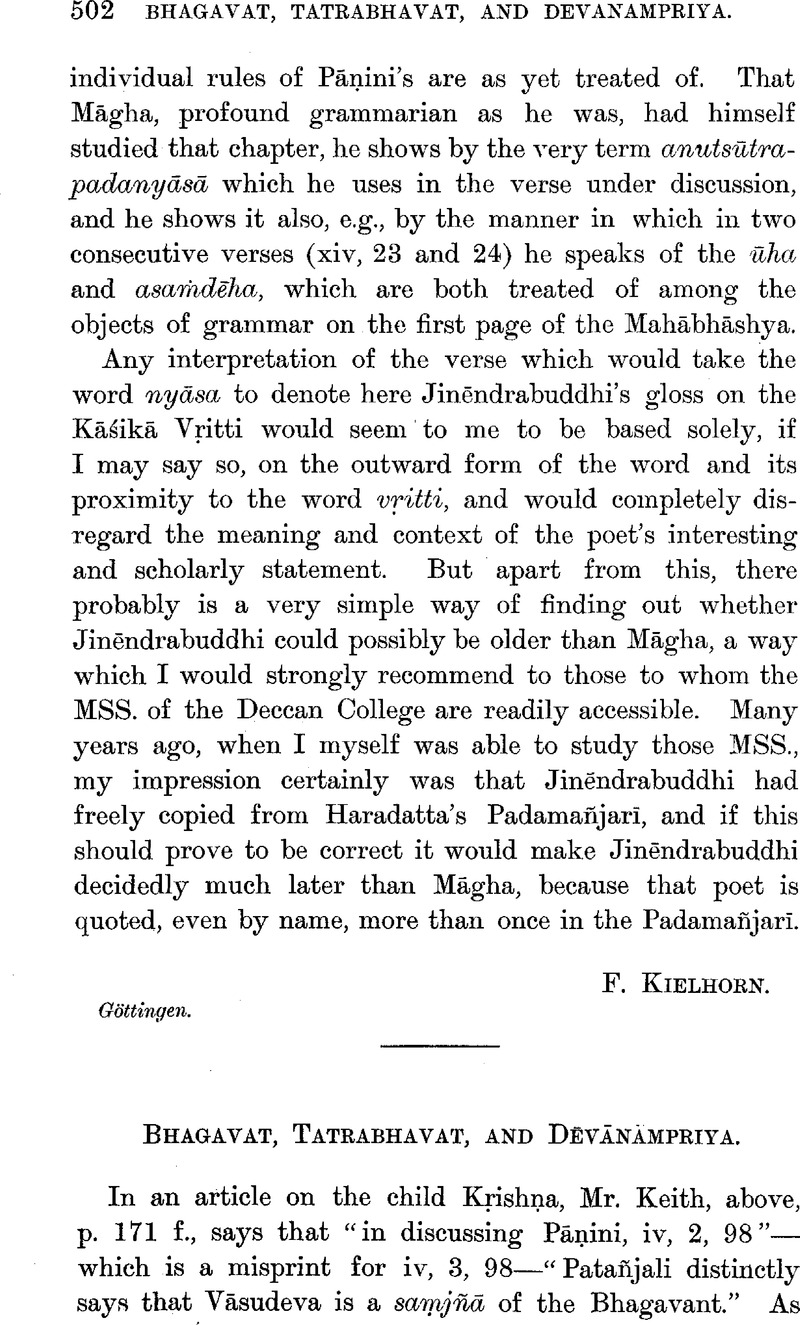No CrossRef data available.
Published online by Cambridge University Press: 15 March 2011

page 505 note 1 Like the Siddhāntakaumudī the Prakriyākaumudī has: dēvānāṁpriya iti cha mūrkhē | anyatra dēvapriyaḥ|
page 505 note 2 It is amusing to see how commentators try to account for this meaning of the word dēvānāṁpriya. The author of the Manōramā says: mūrkhā hi dēvānāḥ prītiḥ janayanti dēvapaśutvdt; to which is added in my MSS. the marginal note mūrkhā hīti | brahmajñānarahitā ity=arthaḥ | tē hi paśuvad=dēvaniyamās= tad=āha dēvapaśutvād=iti |. And the Tattvabōdhinī, in commenting on the above passage of the Manōramā, has: brahmajānarahilatvāt=saṁsāriṇō mūrkhās=tē tu yāgādikarmāṇy = anuṭishthantaḥ purōḍāśādipradānadvārā dēvānām=atyantaprītiṁ janayanti | brahmajñāninas=tu na tathā tēshāṁ yāgādyanushṬhānābhāvāt | atō gavā-disthānāpannatvān=mūrkhā ēva dēvapaśava iti |. NāgōjībhaṬṬa, on the other hand, following KaiyaṬa, takes the gods themselves to be fools,